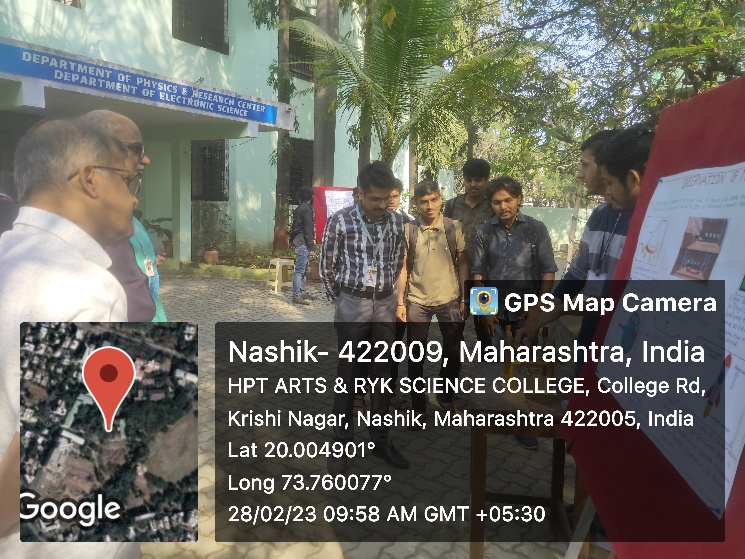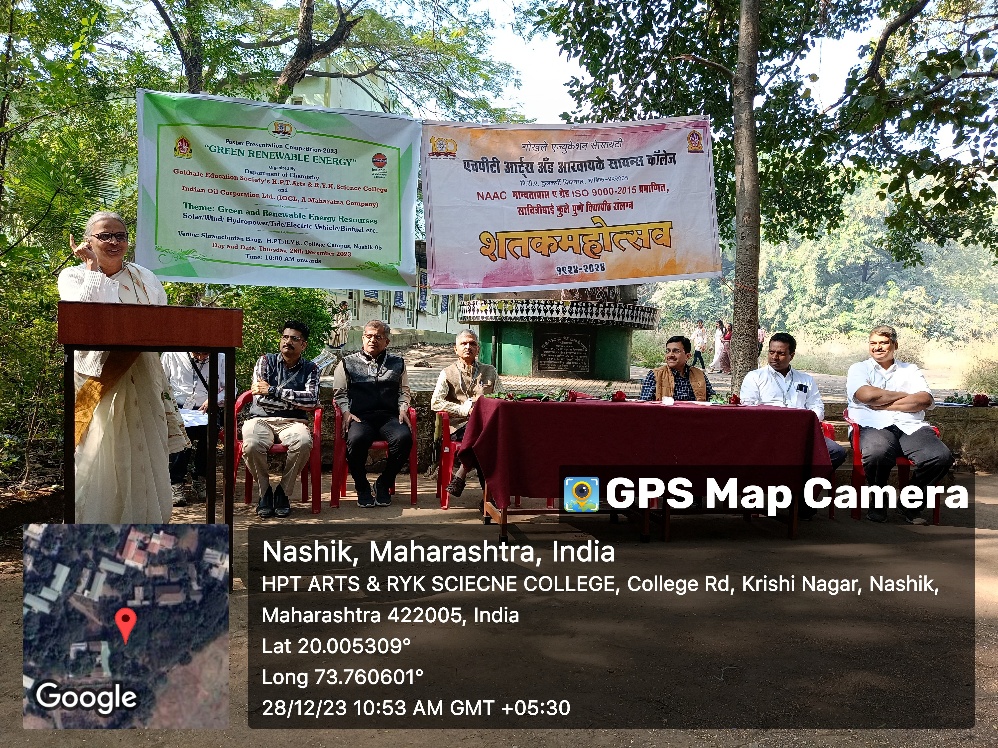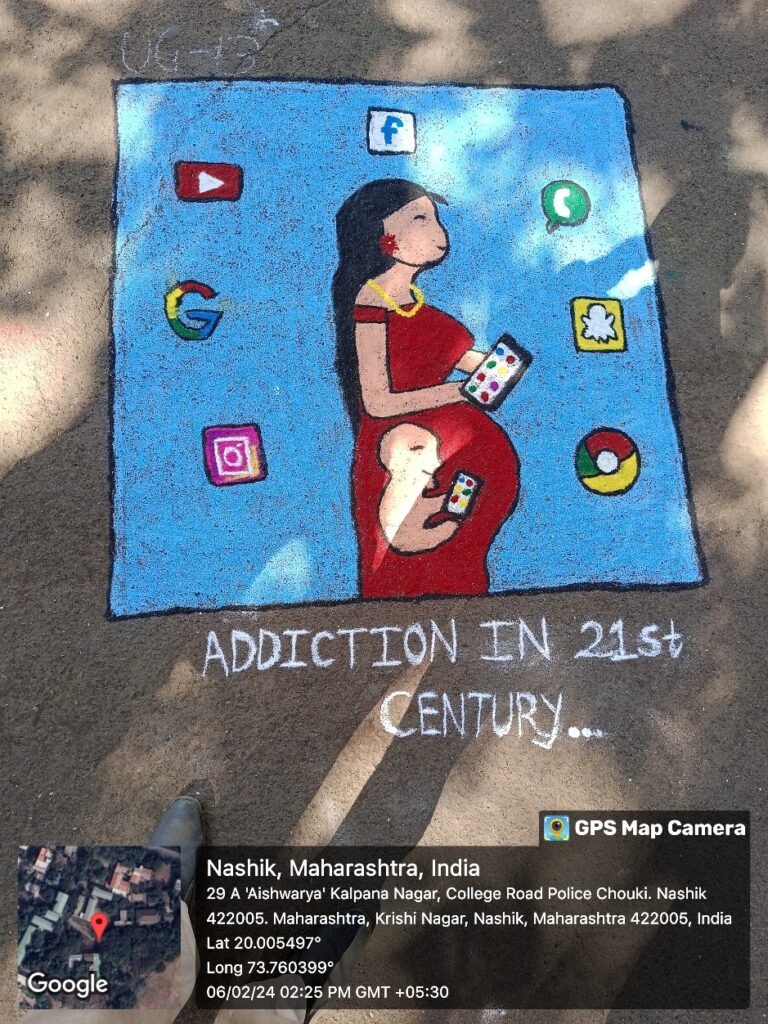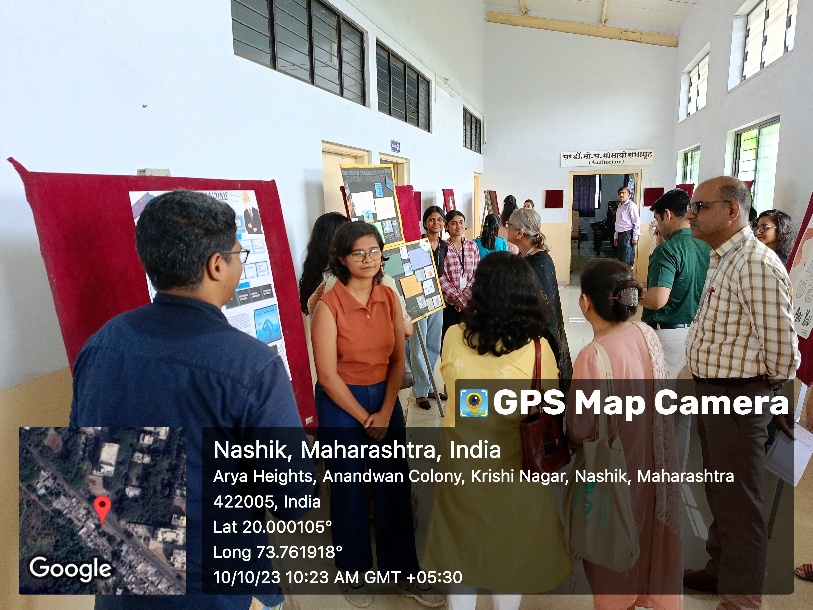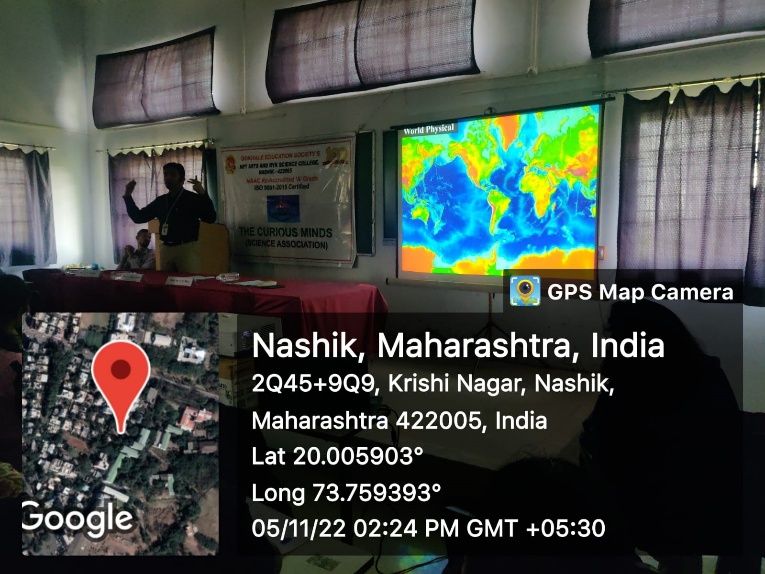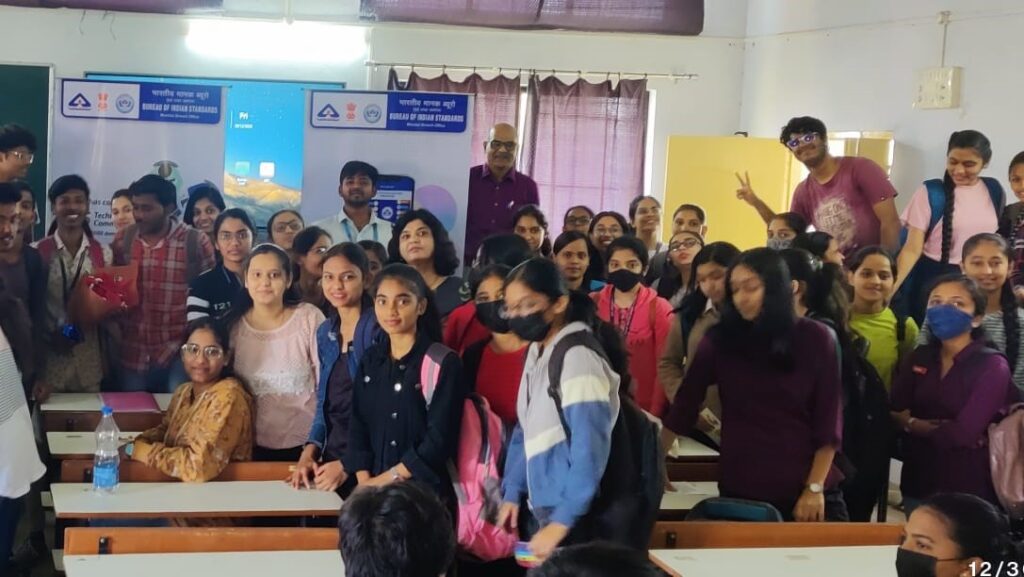Popularizing Science to Develop Scientific Temper and Critical Attitude
Objectives of the Practice
- To encourage students, faculty, and the community to develop a scientific temper and analytical, attitude by exposing them to various scientific concepts, principles, and applications
- To provide opportunities for students to engage in hands-on scientific activities, experiments, and projects that help them develop practical skills and apply theoretical knowledge to real-world problems.
- To make science accessible and relevant to the broader community, including students from diverse backgrounds, by organizing outreach programs, workshops, and events that showcase the impact of science on everyday life.
- To develop critical thinking and problem-solving skills among students by encouraging them to question, analyse, and evaluate scientific information, and to apply scientific principles to address real-world challenges.
- To motivate and inspire students to pursue careers in science, technology, engineering, and mathematics (STEM) fields, and to equip them with the skills and knowledge necessary to drive innovation and progress in their chosen fields.
The Context
The need to perform scientific experiments as hands-on-activity, using easy to understand methodology to inculcate interest in science. The purpose is to ignite curiosity in young minds and to overcome fear and exploitation by dispelling superstition and blind faith. Students coming from diverse background need exposure to scientific theories. Many students find it difficult to cope with the advance levels of science only through reading or lectures. Hence, the practical application of theoretical knowledge becomes necessary in order to generate and sustain interest among students. The Practice, therefore, is appropriate as it aims to orient students about sciences through simple, day-to-day and practically-oriented activities.
The Practice
In spite of disrupted university schedules and overlapping academic terms, college has taken efforts to establish this practice. Science Forum was revived and renamed as the ‘Science Association- Curious Minds’. The practice is carried out through the following activities.
- Establishment of Science Association- Curious Minds for creating better coordination among allied activities
- Arranging National and State Level Conferences, Seminars and Workshops
- Organising expert lectures in offline/online mode
- Introducing Short term courses on application oriented topics like soap making, mushroom cultivation, android app making
- Establishing linkages with organisations like Chemical Research Society, Bureau of Standardization, Infosys, ISRO, Dept National Remote Sensing Center, Ashwamedh Lab
- Arranging Socio-Scientific Exhibition wherein not only students of Science but from Humanities also participated
- Hosting Poster competitions including Avishkar Research Competition
- Carrying out Door to door campaign carried out with the help of BIS
- Celebrating Science Day celebrations on College campus and field visits were conducted
- Organising activities like Solar Lamp Making for tribal students
- Scientific games
- Arranging visits to important places including Nehru Science Center, Planetarium, Labs, industries
- Organising Departmental Festivals like Botanica, Raufta, Genesis
- Celebrating of Special Days like Microbiology Day, National Mathematics Day etc.
- Orienting students for Avishkar Competitions
- Counselling Staff members actively involved in counselling students from villages about science
Evidence of Success
- Beneficiaries of this practice include students, staff, research students and scholars
- Every year approximately 400 students are benefited by the activities of Science Association
- School students in tribal area are trained in solar lamp making
- Over 2500 students attended the tribal area Science-camp
- 79 participants from all over India contributed 186 photographs in the Photo competition of the Zoology department (for more details https://docs.google.com/document/d/15ctRDRPpBfLM2_a0Uq4cNV2ZpQ1dpVW5/edit)
- Students enthusiastically participated in Socio-Scientific exhibitions, Science Days and Poster/Model making competitions
- Participation in university level Avishkar Competition has been increased and students received prizes in different categories
- Visits to Scientific places were attended by students in large numbers
- Students won prizes in different competitions arranged at various colleges in and out of Nashik
- Students were awarded with scholarships given by NGOs like Bluecross and Rathi Industries
- Students have received certificates and honorarium from agencies like BIS, Infosys
- Received publicity in print media
- Received sponsorships from national level agencies like Indian Chemical Society, Kolkata, Infosys, BIS and local community to carry out various activities
- Students from schools in the vicinity visited exhibitions, poster competitions and scientific games
- The College was able to reach out to students and society at large using technology during the pandemic situation
Problems Encountered and Resources Required
Following problems were faced while carrying out the Practice:
Challenges and Adaptations during Covid-19
- The Covid-19 situation disrupted the academic schedule, posing a significant challenge to implementing activities.
- Most schools and colleges in Nashik were closed, limiting the scope of activities to rural/tribal areas.
- Travel restrictions made it difficult for students, faculty, and experts to participate in events.
- In the post-Covid period, the College prioritized completing the syllabus and evaluation, leaving limited time for organizing events.
Adaptations and Innovations
- ICT and other media were leveraged for impactful interactions to counter the challenges.
- Physical seminars were replaced with webinars.
- Traditional posters and models were replaced with digital modes.
- Online platforms like Zoom, Google Meet, and YouTube were used to conduct activities.
However, by employing the available resources the College could achieve success.
Positive Outcomes
- Enthusiastic participation from students, school-children, and teachers helped make the programs successful.
- Conducting these activities provided a delightful engagement for teachers and students during a difficult time.
- The activities created a positive impact on stakeholders and organizers, aligning with the College’s motto of “Quest for Best.”
Notes
The practice directly addresses a core value of NAAC namely fostering Global competencies among students. Scientific activities lead to the development of logical attitude and critical thinking, which can be the decisive competency to get recognition at the global levels. It also imbibes the spirit of research and inquiry among students right from the undergraduate days. Along with this, engagement of students in practical experiences, workshops, field visits, management of events are ensured through activities of Science Forum. Students are exposed to the world outside the classroom and knowledge outside the books. This aspect of experiential learning helps in the development of values like leadership, team work, conflict management, communication skills and industriousness. Thus, this practice takes care of NAAC core values. In addition, the NEP-2020 has emphasised on the revitalization of Scientific Temperament In India. UGC National Higher Education Qualification Framework (NHEQF) has categorically pointed out about developing Scientific thinking and Research Skills. The above practice adapted by the College aligns with the national polices.

